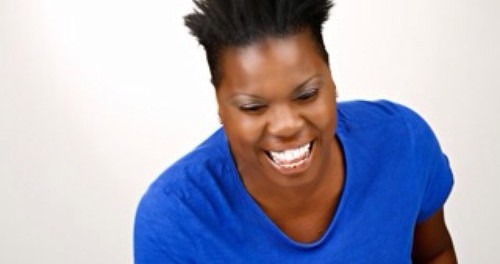It's been a rough year for diversity on Saturday Night Live. Late last year, the internet erupted into an outrage about the continual under-representation of black women on Saturday Night Live. Two weeks ago, the internet erupted into an outrage because one of the black women hired in response to the first outrage did a desk segment on SNL's "Weekend Update" that many felt was the wrong kind of representation for black women.
A flurry of think pieces followed: Assertions that the armies of the politically correct cannot be satisfied, collections of irate tweets by black viewers, suggestions that the piece may be fine in a majority black comedy venue, but not in front of SNL's audience. It seemed ironic: black women had demanded more representation on television, then been shocked and disturbed by it. It didn't seem to make any sense. I immediately started looking for a 10 year old review of "The L Word" that argued this situation made perfect sense.
It took me a week to find "Lesbians on Television: It Ain't Easy Being Seen" by Stacey D'erasmo, a review of a TV show I'd never watched, but which had indelibly shaped the way I understood representations of minorities on TV. It's a review of a TV show, sure, but it's also an account by a member of a desperately underrepresented minority group reflecting on the odd feeling of being represented as the focus of a TV show for the first time.
[W]atching the series left me with a strange sense of dislocation along with my happiness. A peculiar consequence of so rarely seeing your kind on television, in movies, in plays, what have you, is that you can become, almost unwittingly, attached to a certain kind of wildness: the wildness of feeling not only unrepresented but somehow unrepresentable in ordinary terms. You get so good at ranging around unseen (and finding less obvious characters to identify with, from Tony Soprano to Seven of Nine) that it can feel a little limiting to be decanted into a group of perfectly nice women leading pleasant, more or less realistic lives. You can think, ungratefully: Is that all there is?
And isn't that the fascinating irony of being under-represented in media? That when your group is finally represented, your response is a sharp, shocking sense of "that is not like me." Black America chaffed at the middle class comfort of The Cosby Show, career women of the 70s winced at the prim perfection of Mary Tyler Moore, and gay men rolled their eyes at the swishy camp of Jack on Will and Grace. But with decades of perspective, we can now see that these were groundbreaking series that did huge work to educate America about issues of race, gender and sexual orientation. The problem wasn't the TV shows; it was us. We didn't know how to be seen.
Oscar Wilde said "The 19th century dislike of Romanticism is the rage of Caliban not seeing his face in the glass, the 19th century dislike of Realism is the rage of Caliban seeing his face in the glass." The same could be said of the 21st century's ambivalent relationship with diversity. I am a gay man who periodically appears on television, so I've had to face this problem repeatedly. Gay guys on the internet are very ready to explain why I should not be on TV. I am many things a gay man is not expected to be and should not be: I'm fat, I'm nerdy, I'm not well dressed. I am things a gay man is expected to be and should not be: I'm effeminate, catty, and like pop culture jokes. Gay men either think I am a poor representative of gays because I'm atypically fat, or because I reinforce stereotypes of gay male effeminacy. It's hard for them that I am one of the very few gay men they're going to get to see on Chelsea Lately or @Midnight, and frustration with that limited representation is understandable.
But part of growing up as an underrepresented minority is learning how to deal with more and different kinds of representation. The criticisms of Leslie Jones consistently emphasized that she was the wrong kind of representation for black women. Rebecca Carroll at XOjane described Jones's segment as "coonery": Carroll asserts Jones is enacting black stereotypes to reinforce them for benefit of a white audience. She's saying Jones is the wrong kind of black, which is funny, because Jones's entire segment is about being the wrong kind of black. While criticisms of Jones's material are valid (and the reflection of complex, powerful material), it seems like a lot of critics were uncomfortable with Jones being as big, dark, and comfortably African American as she was. When we encounter our own group being represented in media, we're also going to encounter our discomfort with ourselves.
Which is exactly why stand-up comedy is the best art form for dealing with stuff that dangerous and complex. When Sasheer Zamata is performing in a sketch written by a bunch of white boys from Harvard and approved by a very old white Canadian, we can question whose vision of blackness we're seeing. Leslie Jones doing her own stand-up material is unquestionably a black woman commenting on what it means to be a black woman. That's the representation we need.
In D'erasmo's review, she notes "Another consequence of living in a representational desert is that a tremendous urgency develops, a ferocious desire not only to be seen in some literal sense... but to be seen with all the blood and angst and magic you possess." Leslie Jones did that, she took the biggest struggles black women have faced in America, and she made them HERS. And yes, watching someone juggle issues that horrifying and complex isn't always going to be easy, but that's not Leslie's problem, it's yours.
